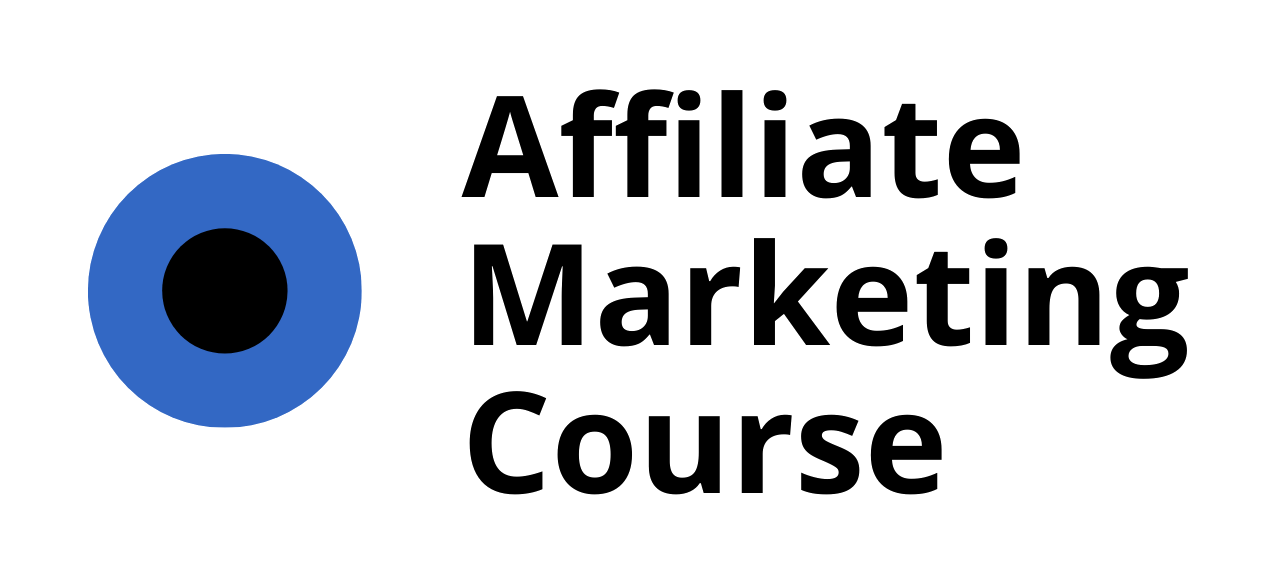Starting an affiliate marketing campaign on your WordPress site can feel overwhelming, especially when navigating through the maze of themes, plugins, and strategies. However, leveraging the power of WordPress plugins can simplify the process and unlock the full potential of your affiliate marketing efforts. Whether you’re looking to integrate affiliate programs, monitor performance, or streamline tracking, there’s a plugin for almost every aspect of affiliate marketing. In this guide, we’ll explore how to effectively implement affiliate marketing on your WordPress site, discuss the best plugins to enhance your strategy, and provide actionable tips to maximize your success. By understanding the ins and outs of affiliate marketing with WordPress, you can transform your website into a high-performing affiliate hub, driving traffic, increasing conversions, and achieving your business goals.
Key Takeaways
- Maximize Affiliate Marketing Potential by selecting the right WordPress plugins and strategies.
- Choose Reputable Affiliate Programs like Amazon Associates, ShareASale, ClickBank, or CJ.com for alignment with your niche.
- Create High-Converting Content with detailed product reviews, tutorials, and comparative analyses to build trust and attract affiliate opportunities.
- Seamlessly Monetize with Effective Plugins such as AffiliateWP or WP Affiliate, and experiment with banners, ads, and natural link placement.
- Enhance Conversion Rates by optimizing content with SEO, internal linking, and improving readability while ensuring fast loading speeds and mobile responsiveness.
- Track Performance Thoroughly using tools like Google Analytics, A/B testing, and LinkTrack to refine your strategy based on data.
- Stay Compliant and Honest by adhering to affiliate policies, ensuring transparency, and using required disclosures to maintain trust.
- Build a Strong Email List with plugins like FluentMail or Mailchimp to send targeted campaigns and boost affiliate promotions.
- Leverage Social Media to expand reach by sharing content and using relevant hashtags to drive traffic.
- Continuous Learning is crucial to stay updated on trends and strategies, learning from successful affiliates, and exploring resources like courses and webinars.
- Avoid Common Mistakes by not overusing affiliate links and prioritizing content quality to maintain trust and deliver value.
- Select the Best Plugins for your needs, ensuring compatibility, support, and regular updates to streamline your affiliate marketing efforts.

How to Effectively Implement Affiliate Marketing on Your WordPress Site
To effectively implement affiliate marketing on your WordPress site, follow these organized steps:
- Choose a Plugin : Install a WordPress plugin like WooCommerce, Easy Digital Downloads, or AffiliateWP for managing your affiliate program. These plugins offer various features, from managing affiliate links to tracking performance.
- Join Affiliate Programs : Sign up with affiliate networks such as Amazon Associates, ShareASale, ClickBank, or CJ Affiliate. Consider niche-specific programs aligned with your audience to maximize relevance.
- Create Affiliate Links : Use affiliate links provided by the network. Customize them for better tracking and sharing using link cloaking tools available through your chosen plugin.
- Strategic Placement : Place links in relevant areas like product reviews, blog posts, or resource lists, ensuring they don’t disrupt user experience. Plugins like AffiliateWP can help manage placements.
- Monetization Strategy : Promote products offering good commission rates (10%-50%) and ensure they add value to your audience. Research tools or plugins that suggest high-commission items.
- Track Performance : Utilize analytics from your plugin to monitor clicks, conversions, and earnings, adjusting strategies based on performance data.
- Compliance : Ensure adherence to WordPress and affiliate program guidelines, including terms of service, privacy policies, and disclaimers. Use plugins or templates to streamline compliance.
- Promotion Channels : Leverage social media, email marketing, and guest blogging to expand reach and drive traffic to your affiliate links. Plan a content calendar to schedule promotions.
- Content Creation : Develop honest, valuable content around promoted products to build trust and increase conversion rates. Start with detailed product reviews or “best of” lists.
- Competitor Mention : Mention competitors like ClickBank and CJ Affiliate when discussing affiliate programs, linking to their sites for additional information. Present them neutrally and professional.
- Include Outbound Links : Add outbound links to useful resources, guides, or tools to enhance user experience, following SEO best practices.
- Interlinking : Use inner links strategically within your content to keep users engaged, linking to relevant pages like AffiliateMarketingCourse.biz .
By following these steps, you can successfully integrate affiliate marketing into your WordPress site, enhancing revenue while maintaining reader trust.
How to Set Up an Affiliate Marketing Program on WordPress
Setting up an affiliate marketing program on WordPress can help you earn commissions by promoting products and services. Here’s a step-by-step guide to getting started:
- Install the AffiliateWP Plugin : Start by downloading and installing the AffiliateWP plugin from the WordPress dashboard. This plugin is highly recommended for its comprehensive affiliate marketing features.
- Join Affiliate Networks : Sign up with reputable affiliate networks like Amazon Associates , ShareASale , and ClickBank . These platforms offer affiliate links and tracking tools.
- Create Affiliate Links : Use the links provided by your affiliate networks. With AffiliateWP, you can easily create affiliate links and insert them into your WordPress content. Place these links naturally in product reviews, recommendations, or content related to the products you promote.
- Promote Ethically : Write informative blog posts about products and include affiliate links. Always use the ‘nofollow’ attribute to comply with Google guidelines and avoid penalties. Include a disclosure statement in your WordPress settings to maintain transparency and adhere to FTC regulations.
- Configure Payment Methods : Within AffiliateWP, configure payment methods like PayPal or Stripe to receive commissions when users sign up through your affiliate links.
- Track Performance : Utilize the analytics feature in AffiliateWP to monitor click-through rates and conversions. This data helps you assess the effectiveness of your affiliate partnerships and optimize your strategy.
- Add a Disclosure Policy : Include a disclosure section in your WordPress settings, such as “Affiliate Disclosure: [Your Name] is an affiliate partner,” to meet legal requirements and build trust with your audience.
- Test Links : Before going live, test your affiliate links to ensure they function correctly. Consider creating a test post to verify functionality and ensure links are working as intended.
- Protect Against Manipulation : Enable features in AffiliateWP to prevent link tampering, such as setting links to open in new tabs and disabling right-clicking to avoid unauthorized use.
- Organize Links : Create a dedicated affiliate links page or categorize them by product type (e.g., tech, health) for easier navigation and promotion.
- Expand Reach : Promote your affiliate links through social media platforms and email marketing campaigns to reach a broader audience and drive traffic.
- Analyze Traffic Sources : Use Google Analytics to understand where your audience is coming from and tailor your marketing strategies accordingly.
- Optimize Landing Pages : Enhance conversion rates by ensuring affiliate links lead to well-designed, mobile-friendly landing pages that encourage users to take action.
- Monitor and Update : Regularly review your affiliate program performance, update links, and adjust strategies based on analytics and feedback to maximize results.
By following these steps, you can effectively establish and manage a successful affiliate marketing program on WordPress, driving traffic and earning commissions while maintaining compliance and optimal performance.

How to Start Affiliate Marketing on WordPress
- Understand Affiliate Marketing Basics
- Affiliate marketing involves promoting other companies’ products and earning commissions from sales made through your unique links.
- Focus on creating trustworthy content to encourage clicks and conversions.
- Choose a user-friendly WordPress theme that aligns with your niche, such as Affiliate Marketing Course ‘s optimized themes.
- Install essential plugins like WooCommerce for product management and Yoast SEO for optimizing content for search engines.
- Ensure secure hosting and regular backups to protect your site from vulnerabilities.
- Write detailed product reviews, tutorials, and guides that showcase your expertise and provide value to readers.
- Incorporate personal experiences and case studies to add authenticity to your content.
- Use originality by sharing unique perspectives and insights not found elsewhere.
- Sign up with reputable affiliate networks like Amazon Associates , ShareASale , and ClickBank .
- Review their terms and conditions carefully before promoting their links to ensure compliance.
- Optimize your content with relevant keywords using tools like Google Keyword Planner to target specific audiences.
- Share content on platforms like Pinterest for visual niches and others suited to your audience.
- Utilize SEO techniques to improve your site’s visibility and attract organic traffic.
- Engage readers through comments, email newsletters, and social media interactions.
- Foster discussion by asking for opinions or advice to create a sense of belonging.
- Clearly disclose affiliate relationships with disclaimers at the beginning of posts or within content to comply with legal requirements like FTC guidelines.
- Use clear disclosure statements to maintain transparency and trust with your audience.
- Use analytics tools like Google Analytics to monitor traffic sources and conversion rates.
- Conduct A/B testing to refine affiliate placements and maximize earnings.
- Create a content calendar for organized posting schedules to maintain consistency and keep your audience engaged.
- Explore additional monetization methods beyond affiliate marketing, including ads and sponsored posts, for a stable income stream.
- Select a niche you’re passionate about, such as tech, health, or home decor, to attract dedicated audiences.
- Focus on delivering high-value content tailored to your chosen niche to build authority and trust.
- Keep up with industry trends and updates to stay competitive in affiliate marketing.
- Be open to trying new strategies and adapting your approach based on what works best for your audience.

Effective Implementation of Affiliate Marketing on WordPress
Implementing affiliate marketing on your WordPress website can significantly boost your revenue. Here’s a comprehensive guide to help you get started:
1. Choose the Right Affiliate Program
Select a reputable affiliate network that aligns with your niche. Popular options include:
- Amazon Associates : Ideal for broad niches.
- ShareASale : Offers diverse products and services.
- ClickBank : Specializes in digital products.
- CJ.com : Known for high-commission programs.
Sign up by creating an account, completing the approval process, and receiving your affiliate links to integrate into your content.
2. Create High-Quality Content
Content is the backbone of affiliate marketing. Focus on producing:
- Product Reviews : Detail both pros and cons to build trust.
- Tutorials/Guides : Provide value and showcase your expertise.
- Comparative Analysis : Help readers make informed decisions.
Use WordPress to publish blogs regularly, targeting topics that resonate with your audience and attract affiliate opportunities.
3. Monetize Effectively
Integrate affiliate links seamlessly using:
- Plugins : Try AffiliateWP or WP Affiliate for managing links and tracking sales.
- Banners and Ads : Use platforms like AdThrive or Mediavine for display ads.
- Natural Placement : Embed links within content without disrupting readability.
Experiment with different formats to find what works best for your audience and niche.
4. Optimize for Best Conversion Rates
Enhance content with:
- SEO : Research keywords using tools like Google Keyword Planner or Ubersuggest .
- Internal Linking : Connect related content to keep readers engaged.
- Readability : Use clear headings and concise paragraphs.
Ensure technical aspects like loading speed and mobile responsiveness are optimized for better user experience.
5. Track Performance
Monitor success using:
- Google Analytics : Track traffic and conversions.
- A/B Testing : Experiment with link placements and content types.
- Third-Party Tools : Use platforms like LinkTrack for detailed insights.
Adjust strategies based on analytics data to continuously improve performance.
6. Stay Compliant
Respect affiliate policies to maintain trust and avoid penalties. Key points include:
- Transparency : Disclose affiliate relationships clearly.
- Compliance : Adhere to each program’s specific guidelines.
- Disclosure : Use required badges or statements as needed.
Always prioritize honesty and fairness in your promotions.
7. Build an Email List
Collect emails through opt-in forms to promote affiliate offers effectively. Use plugins like FluentMail or Mailchimp to manage your list and send targeted campaigns.
8. Leverage Social Media
Share affiliate content on social platforms to expand reach. Engage audiences with thoughtful posts and relevant hashtags to drive traffic to your site.
9. Continuous Learning
Stay updated on trends and strategies by exploring resources like courses, webinars, and industry blogs. Learn from successful affiliates to gain valuable insights.
10. Avoid Common Mistakes
Steer clear of overusing affiliate links and compromising content quality. Maintain trust by delivering valuable content and ensuring affiliate promotions are well-integrated.
The Best Plugins for Affiliate Marketing with WordPress
WordPress offers a variety of plugins that can significantly enhance your affiliate marketing efforts. Below is a curated list of top plugins to help you streamline your operations and maximize your earnings:
1. Affiliate Link Management
- AffiliateWP : This plugin is highly recommended for managing affiliate links efficiently. It allows you to create unique affiliate links for each marketer and tracks their performance with detailed analytics. Visit AffiliateWP
2. Affiliate Tracking and Reporting
- WP Affiliate Dashboard : This plugin provides a comprehensive dashboard to monitor affiliate performance. It offers detailed reports on commissions earned and conversion rates. Visit WP Affiliate Dashboard
3. Email Marketing Integration
- OptinMonster : Optimize your email marketing campaigns by integrating affiliate links seamlessly. This plugin helps in capturing leads and converting them into paying customers. Visit OptinMonster
4. Content Creation and Optimization
- SEMRush : SEMRush is a powerful tool for keyword research and content optimization. By integrating affiliate links into your content, you can drive targeted traffic and improve your SEO performance. Visit SEMRush
5. Social Media Integration
- ShareASale : ShareASale offers a social media sharing plugin that includes affiliate links. This plugin helps in increasing visibility and driving traffic through social media channels. Visit ShareASale
6. E-commerce Integration
- WooCommerce : If you’re running an e-commerce store, WooCommerce is the perfect plugin to manage affiliate marketing. It integrates smoothly with popular affiliate networks and tracks sales effectively. Visit WooCommerce
Tips for Choosing the Right Plugin:
- Focus on Compatibility : Ensure the plugin works well with your current WordPress setup and other tools you use.
- Check for Support and Updates : A reliable plugin should have active support and regular updates to keep it secure and functional.
- Test Before Launch : Always test plugins in a staging environment before going live to avoid issues.
By leveraging these plugins, you can optimize your affiliate marketing strategy and achieve better results. Stay updated with the latest plugins and tools to keep your affiliate program performing at its best.

The Best Plugins for Affiliate Marketing with WordPress
When it comes to optimizing your WordPress site for affiliate marketing, selecting the right plugins can significantly enhance your efforts. Here’s a curated list of top plugins that can help you streamline your affiliate marketing operations:
- 1. AffiliateWP – A powerful affiliate marketing plugin designed to manage affiliate links, track commissions, and automate payments. It integrates seamlessly with popular WordPress themes and plugins, making it a favorite among marketers.
- 2. WP Affiliate Dashboard – This plugin offers a comprehensive dashboard for affiliates to monitor their performance, view earnings, and access exclusive marketing tools. It simplifies the process of managing multiple affiliate programs.
- 3. LifterLMS – While primarily known for its learning management system features, LifterLMS also excels in affiliate marketing by allowing you to create affiliate-only landing pages and tracks student progress effectively.
- 4. Ultimate Affiliate Pro – Packed with advanced features like affiliate link shortening, commission tracking, and email marketing integration, this plugin is perfect for scaling your affiliate program.
- 5. Social Sharing and Flamingo – Enhance user engagement by allowing visitors to share your affiliate links via social media. Flamingo adds a visual pop-up element to capture email leads, which can be further utilized for affiliate marketing campaigns.
- 6. OptimizePress – Known for its conversion rate optimization capabilities, OptimizePress includes built-in affiliate marketing tools that help you create high-converting landing pages and manage your affiliate links effectively.
- 7. MonsterInsights – This analytics-driven plugin helps you track affiliate referrals and conversions, providing valuable insights to optimize your marketing strategies. It integrates with major affiliate networks and tracking platforms.
- 8. Affiliate Links Manager – As the name suggests, this plugin is tailored for managing affiliate links, ensuring they are tracked accurately and displayed attractively on your site.
- 9. ConvertKit – While primarily an email marketing tool, ConvertKit offers robust affiliate marketing features, including affiliate link tracking and the ability to create automated email sequences for promoting affiliate products.
- 10. RafflePress – If you’re running promotions or contests as part of your affiliate marketing strategy, RafflePress is a great choice. It allows you to easily manage giveaways and track participant engagement.
These plugins are selected based on their ability to enhance affiliate marketing efforts, improve user experience, and provide actionable insights. Whether you’re just starting out or looking to scale your affiliate program, incorporating these tools can help you achieve better results. Remember to explore their documentation and setup guides to maximize their potential for your WordPress site.
By leveraging these plugins, you can streamline your affiliate marketing processes, improve your site’s functionality, and ultimately drive higher conversion rates and earnings.




0 Comments